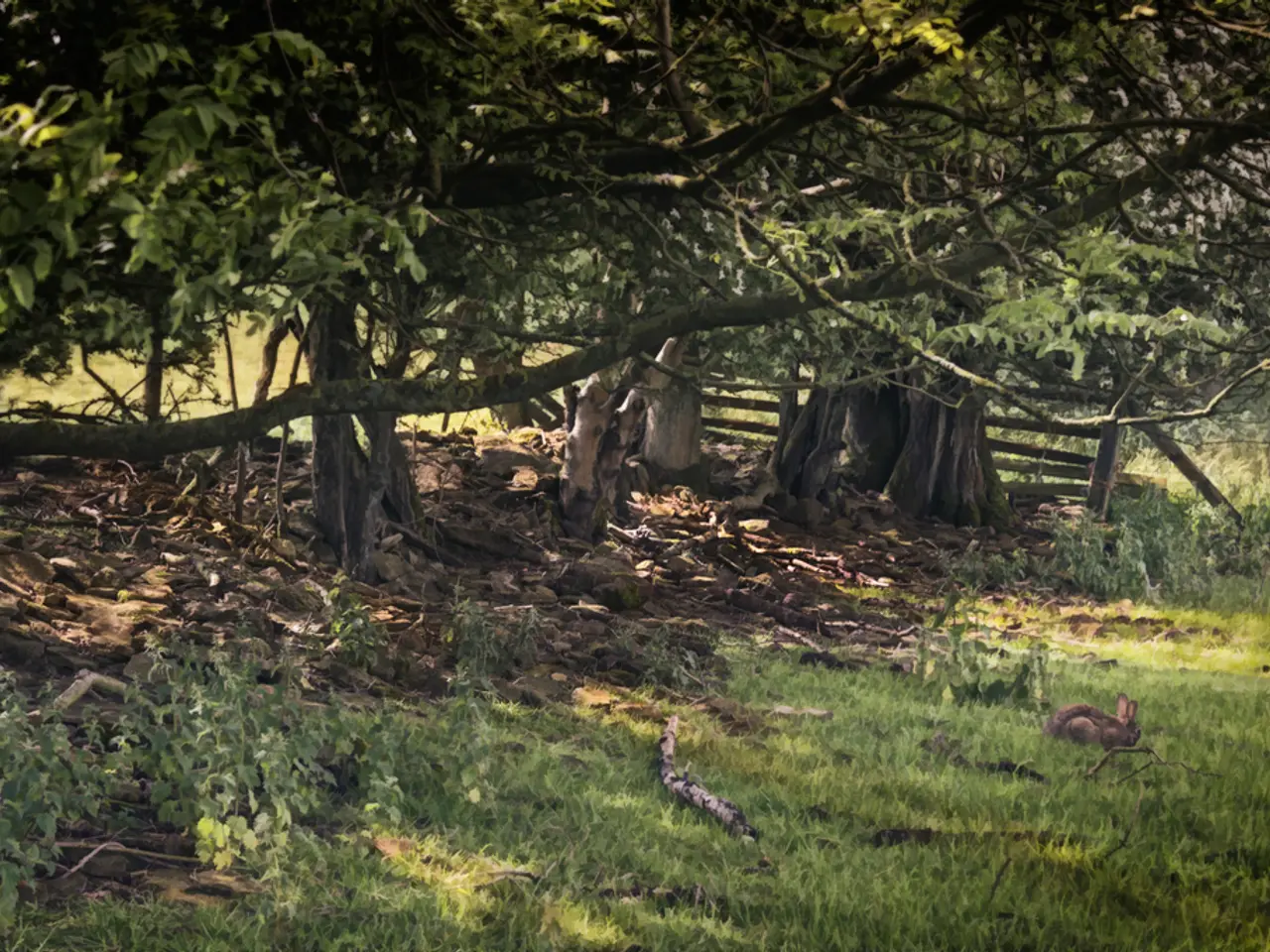Embrace a Calm Approach to Gardening: The Soothing, Stress-Reducing Method Perfect for You and Your Plants This Summer
In the world of gardening, slow and steady often wins the race. Slow gardening, also known as mindful or meditative gardening, is a growing trend that offers numerous benefits compared to high-maintenance gardening.
This approach emphasizes patience, sustainability, and a personal connection to nature. Instead of rushing to achieve perfect, immediate results, slow gardening encourages us to slow down, appreciate life's small, gradual changes, and cultivate mindfulness.
One of the key advantages of slow gardening is its ability to enhance mindfulness and reduce stress. By engaging our senses like smell, touch, and sight, it helps us to slow down, breathe deeply, and appreciate the gradual changes in our gardens.
Moreover, slow gardening is suitable for any space or lifestyle. Whether you have a spacious backyard or a small windowsill, slow gardening makes it possible to cultivate a garden, even in the smallest of spaces.
From a sustainability perspective, slow gardening is a winner. It minimizes waste in materials and effort, avoids overwatering, excessive pesticide use, and overfertilizing, while also protecting natural water bodies and recycling yard waste.
Slow gardening practices include choosing the right plant for the right place, using hand tools, embracing no-dig planting, mulching, attracting wildlife, responsible pest management, and maximizing local resources.
In contrast, high-maintenance gardening often demands intensive labor, constant upkeep, resource-heavy inputs, and can lead to frustration, burnout, and a greater environmental impact.
If you're looking to adopt a more sustainable and mindful approach to gardening, there are several steps you can take. For instance, you can reduce waste in your garden by using resources already available, composting yard waste and kitchen scraps, and repurposing items from thrift stores or the trash.
A 3-stall compost system made from old pallets or a basic compost pile is sufficient for composting. Researching the care needs, mature size, site requirements, and other essential facts of plants before selecting them for your landscape can help avoid underperforming plants.
Organic gardening practices, such as using insecticidal soaps and avoiding excessive use of chemical pesticides and fertilizers, can help protect the natural water system. Drip irrigation systems can be used to target moisture directly to plant roots and conserve water.
Slow gardening is not just about the plants, but also about the journey. Keeping a garden journal detailing weather patterns, growth successes and failures, what was planted when, and other pertinent details about your landscape can help you reflect on and learn from your gardening experiences.
No-dig gardening is a simpler and more sustainable gardening practice. Using a push mower instead of a rider mower in a smaller landscape can be a more sustainable choice. Selecting drought-tolerant plants and native species can help reduce resource use and promote a diverse ecosystem.
In summary, slow gardening promotes mental well-being, sustainability, and a deeply personal relationship with one's garden by valuing quality and mindful engagement over quantity and high effort. It's a restorative alternative to high-maintenance gardening that's worth considering for both novice and experienced gardeners alike.
[1] Smith, A. (2021). The Mindful Gardener: Cultivating Calm, Beauty, and Joy. Penguin Random House. [2] Johnson, L. (2020). The No-Dig Garden: A Guide to Creating a Sustainable, Low-Maintenance Garden. Timber Press. [3] Brown, K. (2019). The Five Minute Mindfulness Garden: A Practical Guide to Mindfulness in the Garden. Watkins Publishing.
- To lead a more sustainable lifestyle and reduce stress, consider incorporating drought-tolerant plants into your home-and-garden, following the slow gardening approach, which promotes a personal connection to nature and provides numerous benefits over high-maintenance gardening.
- In the pursuit of sustainable-living and mindful gardening, it's beneficial to foster diverse wildlife, use organic gardening practices, employ no-dig planting, and repurpose resources, practices that are advocated in gardening books like 'The Mindful Gardener', 'The No-Dig Garden', and 'The Five Minute Mindfulness Garden'.





